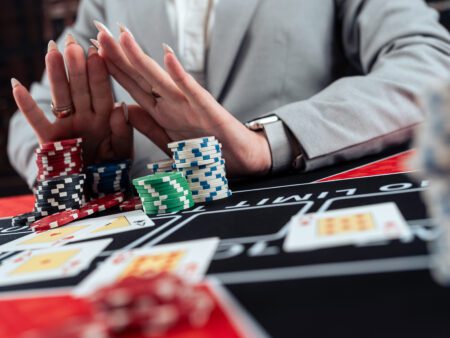Explore the psychological allure behind jackpot games and why they hold such a magnetic attraction for gamblers seeking the thrill of big wins.
What Draws Us to Jackpot Games? The Psychology of Big Wins
Why are Jackpot Games Irresistibly Attractive?
Have you ever wondered why the heartbeat quickens at the sight of those swelling jackpot numbers? It’s not just the money. It’s the dream, the dizzying possibility of ‘what if?’ that lures people from all walks of life to the glimmering screens of online casinos. The allure of jackpot games isn’t merely a matter of chance or luck; it’s deeply rooted in the psychology of human desire for instant gratification and the thrill of the unknown.
At the core of this fascination is the concept of variable rewards, a principle that jackpot games exploit masterfully. The unpredictability of winning, mixed with the occasional wins, keeps players coming back for more, chasing the dragon of a life-changing jackpot. This psychological phenomenon is akin to the anticipation one feels when checking a lottery ticket, where hope and desire cloud the statistical improbability of victory.
Managing emotions in gambling is crucial, especially when the stakes are high. The rollercoaster of highs and lows can be exhilarating but also mentally exhausting. Recognizing the emotional impact of these games is the first step towards a healthier gambling experience.
The Role of Dopamine in Gambling
But what exactly happens in our brains when we engage in jackpot games? Enter dopamine, the brain’s pleasure chemical. This neurotransmitter plays a crucial role in the gambling experience, particularly in the thrilling moments leading up to a potential win. Each time the reels spin or the cards are dealt, our brains release dopamine, not just when we win, but also when we’re mere seconds away from finding out the result. This anticipation builds a powerful psychological loop, where the reward center of our brain lights up at the possibility of a win, regardless of the outcome.
This dopamine-driven desire for rewards can lead to a phenomenon known as ‘the gambler’s fallacy,’ where players believe that a win is ‘due’ after a series of losses. It’s a compelling trap that keeps players in the game, always chasing the next high. However, understanding this can empower gamblers to make more informed decisions and recognize when it’s time to step away.
Interestingly, the social aspect of gambling, particularly in online settings, further amplifies these dopamine spikes. Celebrating wins together, even virtually, or sharing the commiseration of a loss, adds a layer of emotional engagement to the experience, making it more memorable and, for some, more addictive.
Strategies for Mindful Gambling
So, how does one enjoy the thrill of jackpot games without falling prey to their psychological snares? The key lies in mindful gambling – being fully present and aware of one’s emotions and actions while playing. Setting firm limits for time and money spent gambling is a foundational step. It’s also beneficial to take regular breaks, allowing the mind to reset and reducing the risk of impulsive decisions driven by the heat of the moment.
Another strategy is to keep a gambling diary, documenting wins, losses, and the emotions felt during each session. This can provide valuable insights into patterns of behavior and triggers for unwise betting, encouraging a more analytical approach to gambling.
Engaging in other activities that stimulate dopamine in healthy ways, such as exercise, hobbies, or spending time with loved ones, can also help balance the brain’s reward system, reducing the allure of gambling as the sole source of pleasure.
In conclusion, while the psychological draw of jackpot games and big wins is powerful, understanding the underlying mechanisms can help gamblers play responsibly. By employing strategies to manage emotions and maintain control, it’s possible to enjoy the excitement of gambling without it becoming detrimental. After all, the biggest win is enjoying the game without losing oneself in it.










